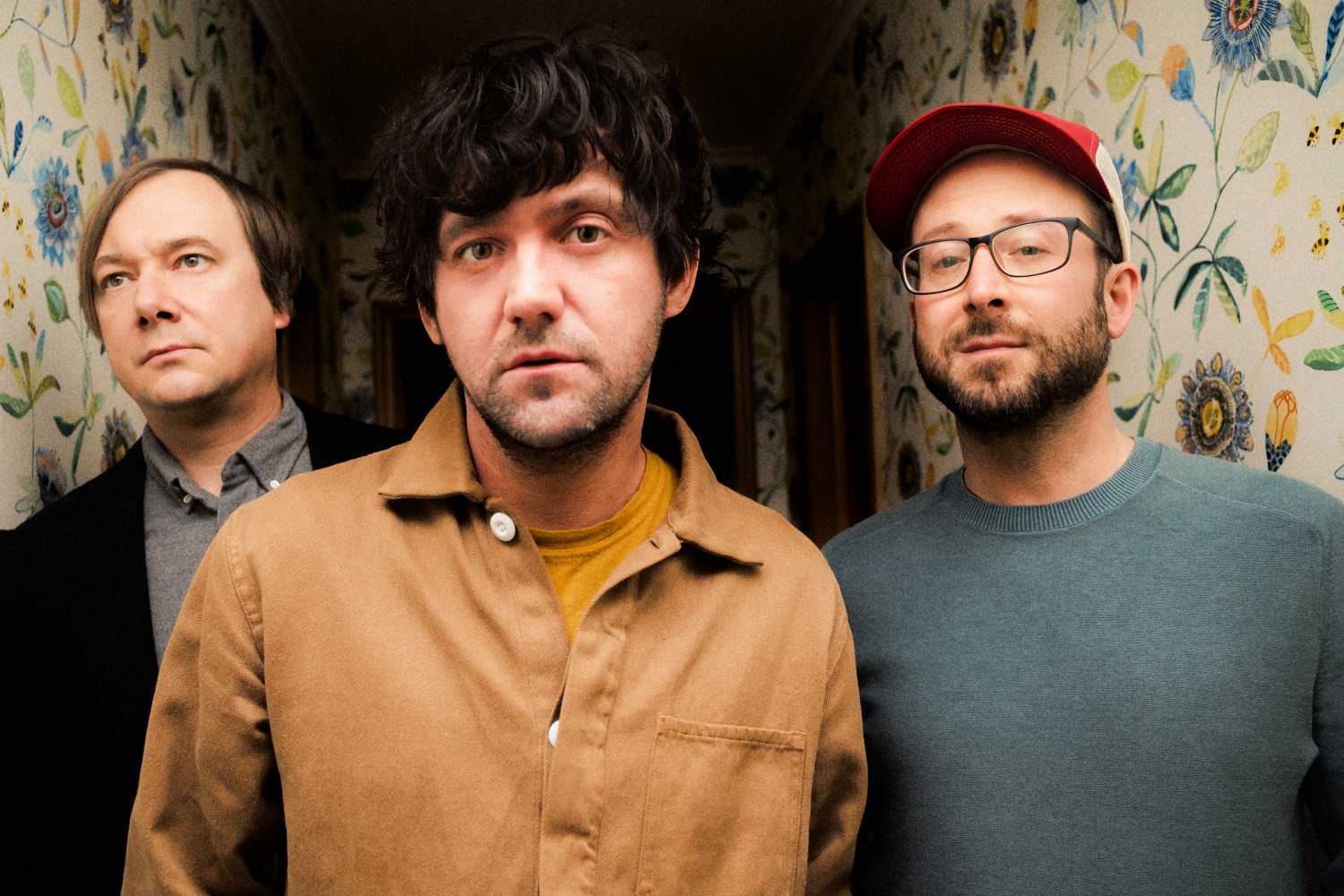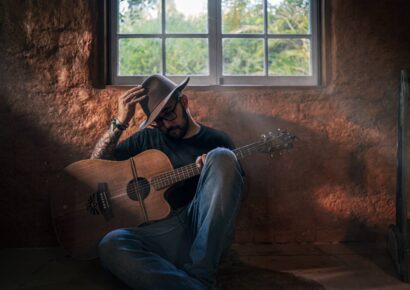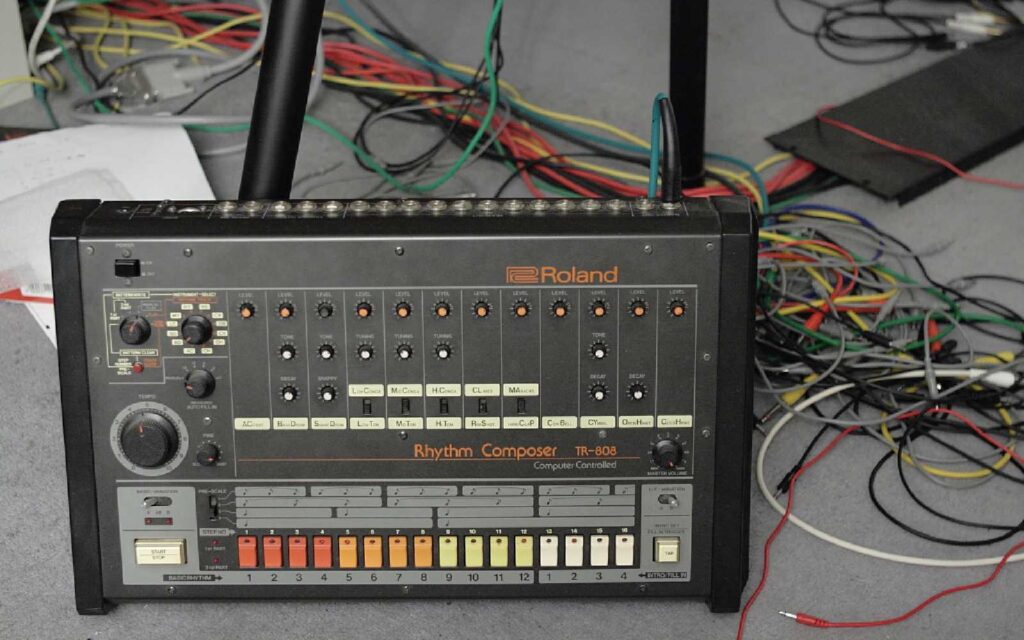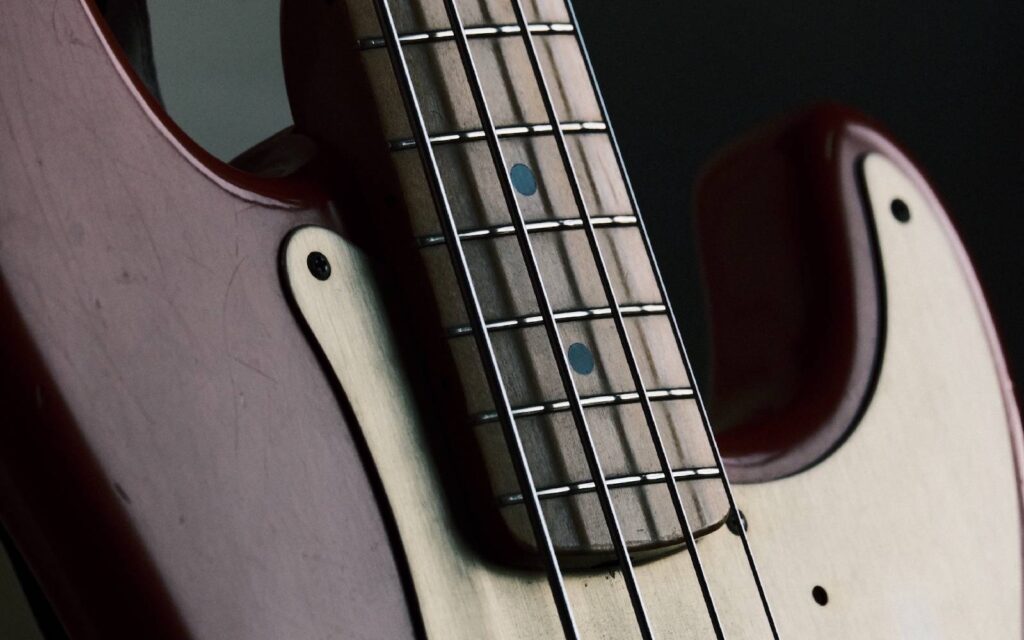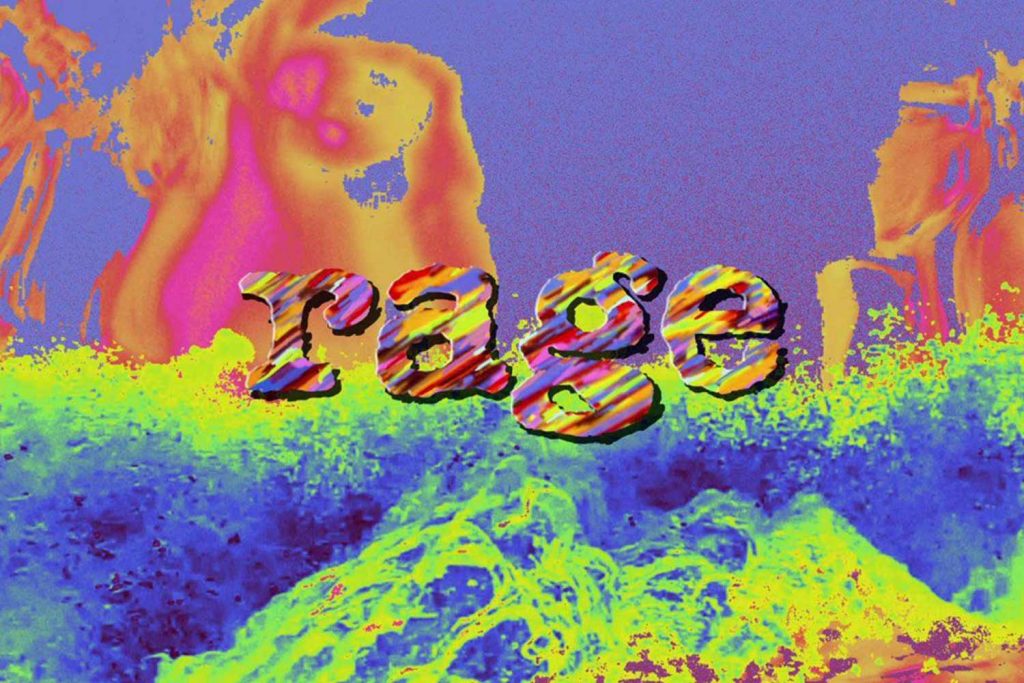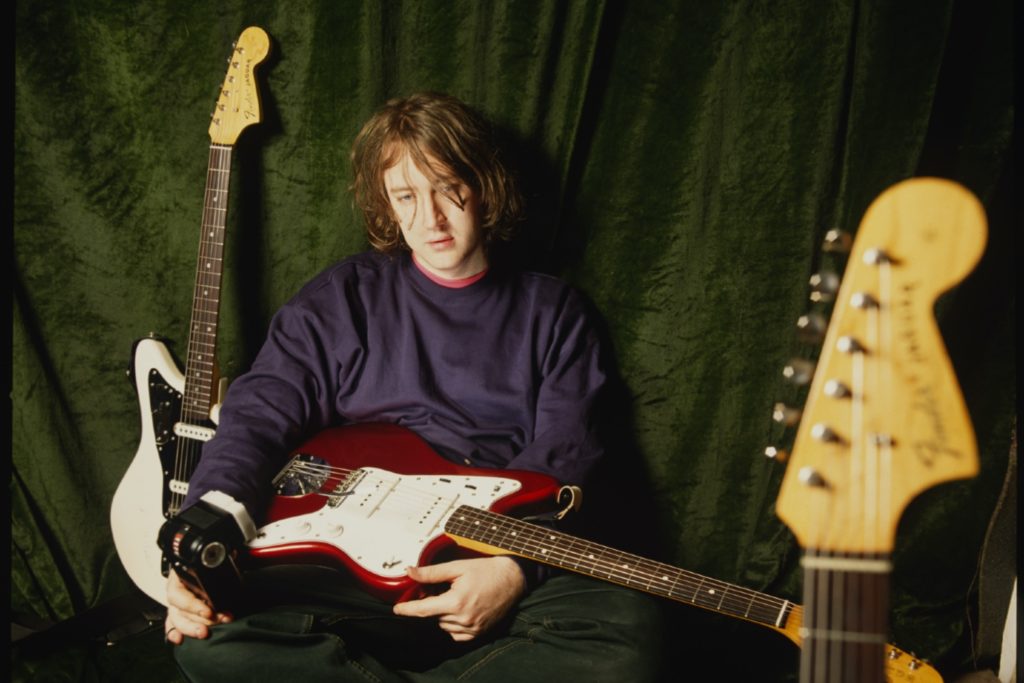Bright Eyes capture something unique, and it's difficult to articulate. It's a moment in time, a feeling we all share, regardless of our specific experiences.
Formed in 1995 in Omaha, Nebraska, they’ve spent decades honing their craft, and they’re back after a short hiatus. Ahead of Bright Eyes’ 2023 Australia and New Zealand tour, I caught up with prolific frontman Conor Oberst.
It’s been a long time since you last visited Australia. I know myself and a lot of my friends are really excited to have you back here – thank you for doing it! How do you feel about it?
It feels really good. We always have a good time when we’re in Australia. We’ve been rehearsing the last week for the shows. The worst part is the flight. 16 hours.
Read up on all the latest features and columns here.
Bright Eyes are my favourite band, so I want to redirect my own fanaticism onto you and ask you who’s the biggest musical hero of yours that you’ve met and what was the interaction like?
Growing up, the first band that I really loved was The Cure. Although I’ve never met Robert Smith. I’ve had the good fortune of being able to meet a lot of my heroes. You know what they say, never meet your heroes…
This is that moment for me.
[Laughs] Well, I’ve never been too disappointed. I’ve met Neil Young, Jackson Browne, Bruce Springsteen. David Byrne, Emmylou Harris. A lot of the old school. They’ve always been very kind to me and shown a welcoming vibe towards me which is very fortunate.
Bright Eyes has been omnipresent in the rock zeitgeist, particularly in the midwest, for about 20 years now – and you were quite young when you started to make waves – how has the kind of mythos that has formulated around Bright Eyes affected your artistry over this length of time?
I signed my first record deal with my first band Commander Venus – such a bad name – when I was 14 years old and I was still in high school, and I started Bright Eyes when I was 15. Point being, I don’t really know anything else. It’s just been my life. I guess I had the blessing and the curse of not being in any way, shape or form an overnight success. Everything happened slowly. Touring, vans, playing house shows. Playing wherever we could play. Everything with Bright slowly started becoming a little crazier and bigger. Sometimes I think ‘what else would I do with my life?’ Would I be a veterinarian, or an astronaut? I don’t know. Truth be told I don’t have any other reasonable, normal skills other people have…
Lucky you’re really good at songwriting then..
[Laughs] I’m just a 43 year old playing in rock bands so I’ve just started accepting it all – this is it, better make the most of it.
Tell me a little about the conceptualisation process behind Down in the Weeds, Where the World Once Was – the record is 3 years old now but it still feels new and forward thinking. To my ears there’s such a litany of musical influences at play in the expansive arrangements of these songs and yet the record never feels like it’s straying far away from its own defined sound – what were the musical driving forces behind composing the record? Where did the songs come from within you?
There was such a long time between The People’s Key in 2011 and Down in the Weeds. We started recording it in 2018 and we spent a long time making it. Just being back together with Mike Mogis and Nate Walcott was the difference between Down in the Weeds [,Where the World Once Was] and my solo records – I often tell people I’m the most normal person in Bright Eyes because I’m in a band with two of the most neurotic musical geniuses on the planet, so I’m very lucky. It was important to us that Down in the Weeds felt and sounded like a Bright Eyes record, but I never know how to describe Bright Eyes. When people ask me about the band, I say it’s like ‘confusion rock.’ Maybe we piss people off, even our own fans. But we don’t do it to be antagonistic. We do it with the hopes of getting to a new place for us creatively.
Do you feel like you got there?
I think so. It was very collaborative. Nate and I worked on a lot of the songs, writing them together. He would send me a lot of music and I would write melodies and lyrics and it felt very much like a band process. We had the dream team with the rhythm section, John Theodore from Queens of the Stone Age and Flea from Red Hot Chilli Peppers play on a lot of it – Nate was in the Chilli Pepper’s touring band for 3 or 4 years. We liked that it felt kind of unexpected and they both added a lot to the sound of the record.
As a huge fan, it’s always been difficult, at least here in Australia, to learn about your formative years and the creation of Bright Eyes. Can you tell me a bit about the recording of A Collection of Songs Written and Recorded 1995–1997 and what the scene was like in Omaha at the time?
The interesting thing I think about that time was that there weren’t different scenes, there was just one scene. If you were a punk band, or a ska band, you would still play together in the one place. In retrospect I think that was really cool. There weren’t any labels showing up to sign you. That’s why we started our own labels. There was this band called Cursive, and a songwriter called Simon Joyner who was great.
Coming up, I was always kind of the young kid around, I guess I was a bit of a novelty at the time to others. It was like ‘look at this kid screaming his head off with an acoustic guitar – weird!’ [Laughs] When I hooked up with Mike Mogis, he was in a band with my friend Ted Stephens called Lullaby for the Working Class – great band, an unsung, amazing band and in many ways they were the prototype for Bright Eyes because Mike would produce Ted’s songs. We sort of became like them. Mogis didn’t have anything to do with recording A Collection of Songs, actually he said to me ‘I gotta tell you, straight up, I love your songs, but they sound like shit!’ So he brought his 8 track machine around to my parents basement and we made Letting Off The Happiness in the laundry room.
28 years has passed since 1995 to now – what propelled you to continue to make music and tour, particularly as the group Bright Eyes?
You know, I ask that question of myself all the time. Part of it is that I don’t know what else to do. I still love making music.
It’s not like you’re just continuing to do it though, I feel like your music is always pushing towards improving your artistry. There’s not been a Bright Eyes record that hasn’t felt special. I don’t really feel like you see that with bands a lot over such a long period of time.
Well, I often say that there’s not a lot of music in the music business. The music business sucks. There’s so much about it that I hate. I think part of the reason we maybe didn’t ever reach the heights of some of the bands that were our contemporaries was that we were bored of the construct of the way things happened. Or that our ideas were too weird for people to latch onto. People seem to like our records 5 years after they’re released. So it’s always felt like ‘let’s just make something and wait 5 years for someone to tell us it’s brilliant!’ But when it comes out it’s like ‘this is fucking shit!’ [Laughs] I think though that myself, Mike, Nate and our group of friends are still just chasing the feeling of creating something that feels beautiful. We don’t always get there, but we try. It’s the act of trying and the act of doing it again that’s important.
So, at this point it’s not about money, or gaining a bigger audience. We’re fine, we have a bit of money, there’s enough of an audience, we can play around the world and maybe some people will show up. There’s a lot of great, great bands that can’t say the same thing so we feel very lucky to have what we have. We’re interested in advancing ourselves creatively and to make records that we’re proud of. I could be dead tonight, or tomorrow, so it’s what we make and leave behind that matters. It doesn’t matter who writes you a check or if you play massive shows or anything like that, all of that is temporal and fleeting. For me, it’s about art. That’s what matters.
With the Companion series – what was your favourite Bright Eyes record compared to now, having revisited and re-recorded mostly all of your catalogue?
Good question!
Don’t think about it! Instinctive answers only.
[Laughs] Well, I don’t think I can break it down to one record. What I will say, off the top of head, on the Noise Floor EP, there’s a song called “Vanishing Act”, which I literally couldn’t remember recording. Listening back to it, I thought ‘this is cool!’ But the recording was so ridiculous – so bad. So going into the Companion series, re-recording that song felt like giving it a second chance. I will say is that as we moved through [the Bright Eyes discography] it got harder and harder. Re-recording the older stuff immediately made the songs sound different and modern. As we got towards Cassadaga and The People’s Key – when we recorded those albums initially we had a really nice studio with nice equipment – so re-recording them for the Companion series was a little more challenging without a big gap in fidelity between the older and newer records. The point of the Companion series was to make the songs sound different. It was a little harder to do with the newer records.
Last question – when does the next record drop?
You know, we’ve been recording it… If all goes well maybe next fall. Knock on wood. Or early 2025. That feels so far away though. So I’m hoping for next fall.
It’s so good to have Bright Eyes back. Thank you!
Cool. Thank you!
Bright Eyes are on tour this week, kicking it off at the Enmore Theatre. For more info, tickets and dates,see Love Police here.
